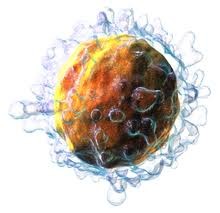Researchers have discovered that T cells immune cells that protect the body from infections and cancer change the body’s metabolism when they are activated, and that this activation leads to changes in behavior.
It is currently known that individual T cells change their metabolism to meet their energy needs after being activated, but the systemic metabolic effect of sustained activation of the immune system has remained unexplored.
To understand the systemic effects, the group looked at T cell activation in mice designed to lack a surface receptor called PD-1, which is necessary for inhibiting the activity of T cells. T cells remain activated in mice without the receptor, similar to those in the immune systems of people with certain types of autoimmune disease.
In these mice, they found that amino acids molecules that are used to build proteins were depleted in the blood, and that they were increased in the T cells themselves, implicating the T cells in the change. The team tracked and imaged amino acids in many organs, and found that the depletion of amino acids from the blood was taking place due to the accumulation of amino acids in activated T cells in the lymph nodes, showing that strong or long lasting immune responses can cause metabolic changes elsewhere in the body.
Researchers analyzed the biochemistry of the brain, they found that the systemic decrease in the amino acids tryptophan and tyrosine in blood led to lower amounts available in the brain, limiting production of the neurotransmitters serotonin and dopamine. These neurotransmitters affect emotions, motivation and fear.
Serotonin is often a target of drugs that combat depression. The researchers found that their depletion in mice without PD-1 resulted in behavioral changes dominated by anxiety and exacerbated fear responses, which could be remedied by providing a diet rich in an essential amino acid.
haleplushearty.blogspot.com


